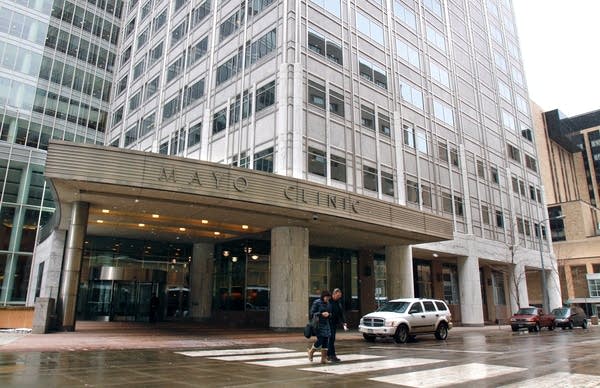Mayo Clinic expects COVID-19 antibody test to be ready Monday

Go Deeper.
Create an account or log in to save stories.
Like this?
Thanks for liking this story! We have added it to a list of your favorite stories.
Researchers at Mayo Clinic expect to release a test that would tell whether a person has had and recovered from COVID-19 on Monday. The Star Tribune reports the University of Minnesota is also narrowing in on an antibody test.
The tests would help public health officials understand the scope of the outbreak and identify people who could safely be in public to help with relief efforts. They would also help in an effort to treat critical COVID-19 patients with plasma from individuals who have recovered.
Elitza Theel is director of the Mayo Clinic lab testing COVID-19 antibody tests. She spoke with MPR News host Tom Crann Wednesday.
You can listen to it by clicking on the audio player above or read the transcript below. It has been lightly edited for clarity and length.
Turn Up Your Support
MPR News helps you turn down the noise and build shared understanding. Turn up your support for this public resource and keep trusted journalism accessible to all.
Tell us first, what is an antibody?
Antibodies essentially recognize the virus and can help inactivate and kill it.
It's important to know that these types of tests are different than all of the molecular tests that are being done off of nasal swabs or throat swabs. Those tests detect viral genetic material [to show whether the coronavirus has infected that person].
These [blood serum] antibody tests are detecting a person's immune response to that virus. It takes, in some cases, 10 to 11 days for a person to mount an immune response and produce these antibodies, so these tests aren't going to be used as a diagnostic in patients that are presenting with two or three days of symptoms.
Tell us how soon they'll be ready
At Mayo, we hope to have it available as early as next week. We will be doing kind of a slow roll out because, similar to the situation with molecular tests, there's a limited supply of these tests. We're hoping that commercial manufacturers will ramp up here in the next few weeks so that we can make it available much more widely.
Then it can go straight to doctors, public health departments, or is FDA approval needed? How does that work?
FDA approval is not needed at this time. However, laboratories that are offering these tests have to go through a very rigorous verification process to make sure that the tests they're offering provide the right results.
Clinicians will be able to order this in individuals who they think having are a result for would be helpful to either guide return to work [decisions] or further quarantining.
Also, you may have heard about the convalescent plasma treatment trials. As we wait for antivirals and vaccines to be developed and deployed, we need some sort of bridging therapy. So, the idea here is to identify individuals who have recovered from COVID-19, collect their plasma, make sure that it has the antibodies, and then use that plasma to treat acutely ill patients. We're basically providing somebody else's antibodies to ill patients who maybe don't have an immune response mounted yet, and these antibodies would essentially help to fight off the virus.
How close are we on plasma treatment?
Clinical trials are starting very soon, both here at Mayo Clinic as well as many other locations across the U.S.
Why is it important to have this information about how many people have been infected, even if they are recovered?
There's a couple of reasons. One, we know there's a significant number of individuals who have been infected without symptoms. So, knowing the true number, the true denominator of individuals who have been infected with COVID-19, would allow us to determine the true case fatality rate. And then the other reason this is important is identifying when, as a community, as a region, as a nation, we've reached herd immunity status.


